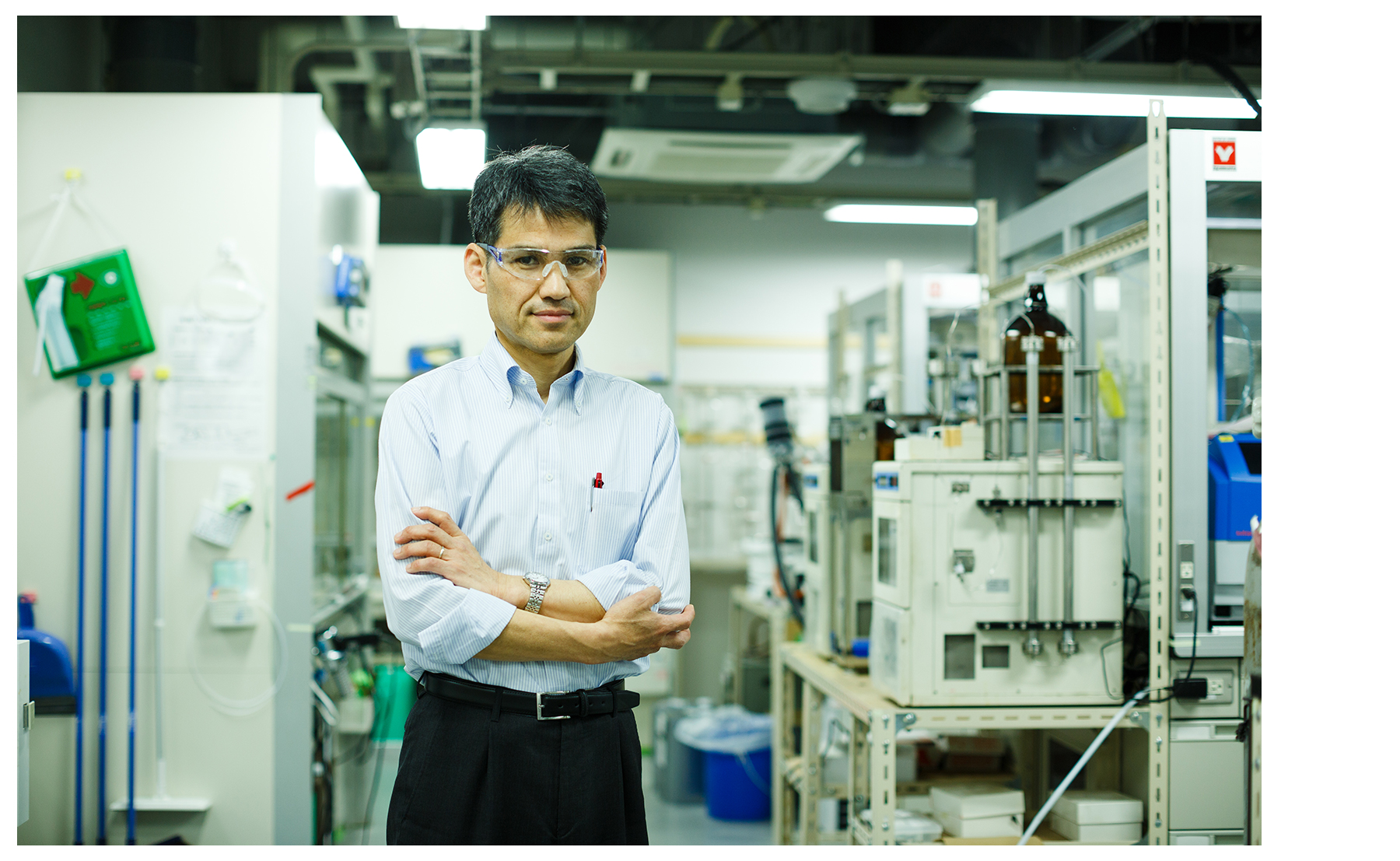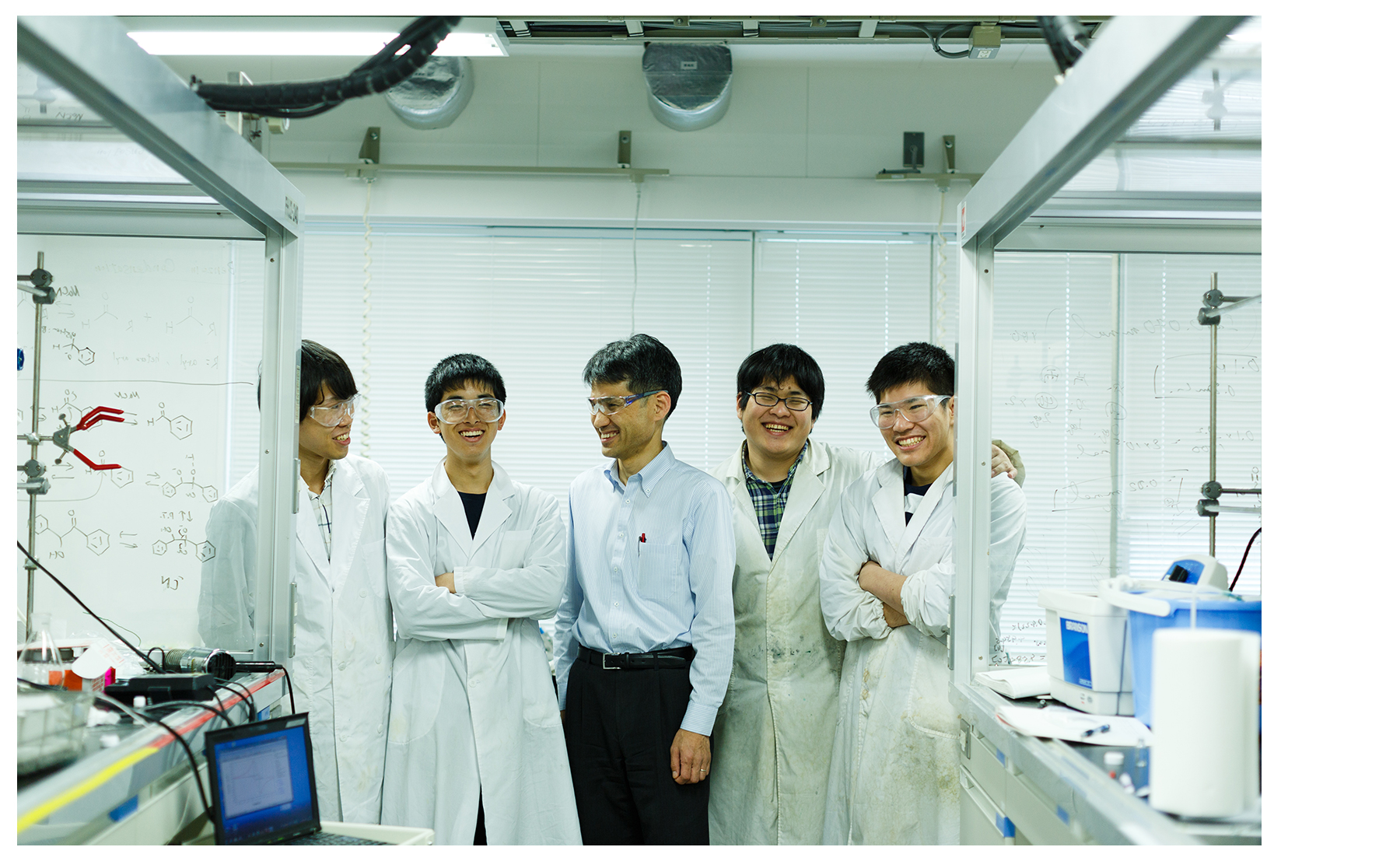My research group focuses on organic materials showing opto/electronic functions, from molecular design and synthesis to device applications. π-Conjugated molecules represented by benzene (C6H6) have π-electrons, which are not strongly bounded by the atomic nuclei and thus show various behaviors upon external stimuli in the molecular solid state (or crystalline phase). The external stimuli, such as photo irradiation, electric field, chemical doping, carrier injection, to π-conjugated molecules often bring semiconducting behavior of neutral organic molecules with the closed-shell structure, and then various semiconducting functions, e.g., photocurrent generation, switching, electrical conduction, light emission, are emerging. In addition to diversity of molecular structures, molecular arrangement in the solid state is also quite diverse. Both diversities in the different hierarchies are the origin of different semiconducting behaviors. In other words, molecular structure and molecular arrangement in the solid state are two factors that can be designed and controlled in order to realize better semiconducting characteristics of materials. This is our key issue in our study of organic materials.




- Name:Kazuo TAKIMIYA
- Position:Professor of Chemistry
- Laboratory:Laboratory of Organic Chemistry II
- Hometown:Fukuyama in Hiroshima
- Favorite Books:”End of capitalism and crisis of history” (Kazuo Mizuno),”Collapse” (Jared Diamond), “The Showa-period and Japanese: Root of failure” (Kazutoshi Handou) and other related history books. I am personally interested in how the current time can be described in the perspective of history.
- Research area:Synthetic organic chemistry, organic functional materials
- Posted Date:Jul 10, 2018
1.What kind of the research are you doing?
2.What is the reason for starting your study?
Our target molecules are often called as organic semiconductors. Before studying organic semiconductors, I was involved in the study of organic conductors and superconductors based on charge-transfer complexes. In the year of 2000, I found organic superconductors based on originally synthesized molecules, and at almost the same time, a series of papers describing superconducting phenomena based on organic field-effect transistors were published. This made me interest in organic devices. Although the research on the superconductivity of organic transistors turned out to be misconduct, organic electronic devices has become an important field in worldwide. The potential of organic devices is one of the most attracting points to me. Also the fact that the device performances are largely affected by molecular assembly and the manner of intermolecular orbital overlap in the solid state implies that the better performing organic semiconductors can be designed. The challenging issue in this field is how to design molecules and molecular solid to achieve desirable performances in the electronic devices.
3.Message for prospective students
Chemistry is the field that can create new materials. Among different branches of chemistry, organic chemistry has traditionally created a wide variety of molecules with small variation of elements, such as carbon, hydrogen, nitrogen, sulfur and related elements, by connecting these elements in diverse way. Modern organic materials chemistry focuses on molecular assembly in the solid state, which can bring totally different functions from individual molecules. The diversity of organic molecules is infinite and the same is true for molecular assembly. These facts endorse the infinite potential of organic materials for various applications. I would like to share the fascination and excitements in the research on organic materials with young researchers and students.

